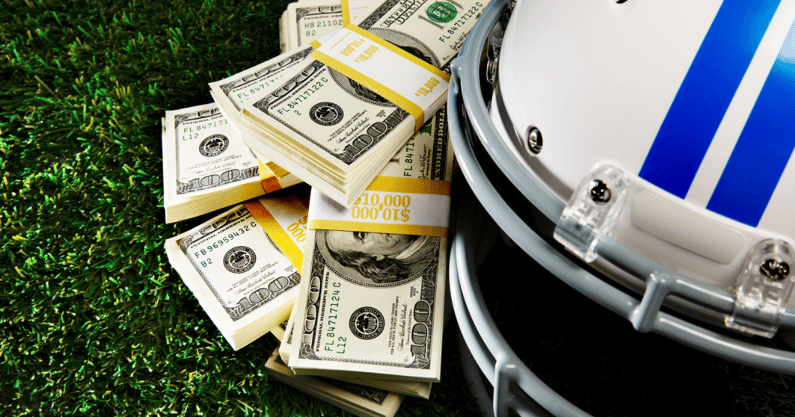Pennsylvania to discuss NIL for high school student-athletes this summer

Six days after the Louisiana High School Athletic Association announced it would allow high school student-athletes to profit off their name, image and likeness, the Pennsylvania Interscholastic Athletic Association says it’s ready to have a discussion about NIL.
According to a report from Mike White of the Pittsburgh Post-Gazette, the PIAA will talk about NIL for Pennsylvania high school athletes this summer.
“PIAA says it will watch New Jersey, New York and Ohio, who all plan to have NIL policies,” White reported.
The LHSAA approved a positioning statement for its bylaws last week that allows high school student-athletes to receive NIL benefits.
Louisiana joins a handful of other state high school athletic associations – Alaska, California, Kansas, Nebraska, New Jersey, New York and Utah – that allow their student-athletes to participate in NIL without jeopardizing their high school eligibility. The Ohio High School Athletic Association is set to vote on a NIL referendum in early May.
There are currently 17 states that have laws providing student-athletes with the right to profit from their NIL. In addition, 16 states are considering new NIL legislation. But most high school associations – including major states like Texas, Florida and Georgia – have prohibited student-athletes from participating in NIL. There are also 26 states that currently prohibit NIL altogether – at least at this point. The NCAA adopted a name, image and likeness policy on July 1, 2021, for all incoming and current student-athletes in all sports.
Pennsylvania considering NIL signals shift in momentum
Experts On3 talked with agreed there seems to be a shift toward allowing high school student-athletes to profit off their NIL. The Pennsylvania Interscholastic Athletic Association acknowledging it’s ready to discuss NIL and the upcoming vote in Ohio are both signs of that trend, experts said.
“I think we are definitely seeing a shift in high school athletics when it comes to NIL,” said Christopher Aumueller, who is the CEO of FanWord, a company that allows students to showcase, promote and monetize their NIL. “And in my opinion, that’s a good thing. Obviously, high school athletics vary from collegiate athletics in a variety of aspects. But at the end of the day, NIL is about athlete rights. So, I like high school associations taking a proactive approach.
Top 10
- 1Breaking
Shedeur Sanders
Not selected in NFL Draft 1st round
- 2New
Picks by conference
SEC, Big Ten dominate NFL Draft
- 3
Joel Klatt calls out
'Trash' Shedeur Sanders narrative
- 4
10 Best Available Players
After NFL Draft 1st Round
- 5Hot
ESPN roasted
For Shedeur Sanders empty couch
Get the On3 Top 10 to your inbox every morning
By clicking "Subscribe to Newsletter", I agree to On3's Privacy Notice, Terms, and use of my personal information described therein.
“While I don’t think that the decision of a single high school association has a severe impact on another high school association per see. But you certainly start to evaluate your own NIL laws if the market is shifting as a whole. And that is certainly the case.”
Eyes on Ohio NIL referendum vote
OHSAA’s member high school principals will vote electronically on the proposal beginning May 1 and ending at 4 p.m. May 16. If approved, NIL would become effective Aug. 1, unless otherwise noted.
The National Federation of State High School Associations does not officially keep a list of state associations that allow or don’t permit NIL in its handbook. However, state high school athletic associations across the country have been having frank discussions about NIL.
“States are in catch-up mode,” Geoff Kimmerly, communications director with the Michigan High School Athletic Association, told Stateline in March. “It’s a very fast-moving process right now.”
A fast-moving process that also includes Pennsylvania high school student-athletes now.
“I do think that high school athletic associations are starting to understand there’s nothing wrong with high school athletes monetizing their NILs, and that they shouldn’t be restricted from doing so,” said Mit Winter, sports attorney at Kansas City-based Kennyhertz Perry LLC. “It’s the same thing that happened at the college level, people are realizing there’s no reason a student should be restricted from being paid for the use of his or her NIL just because he or she is also an athlete.”